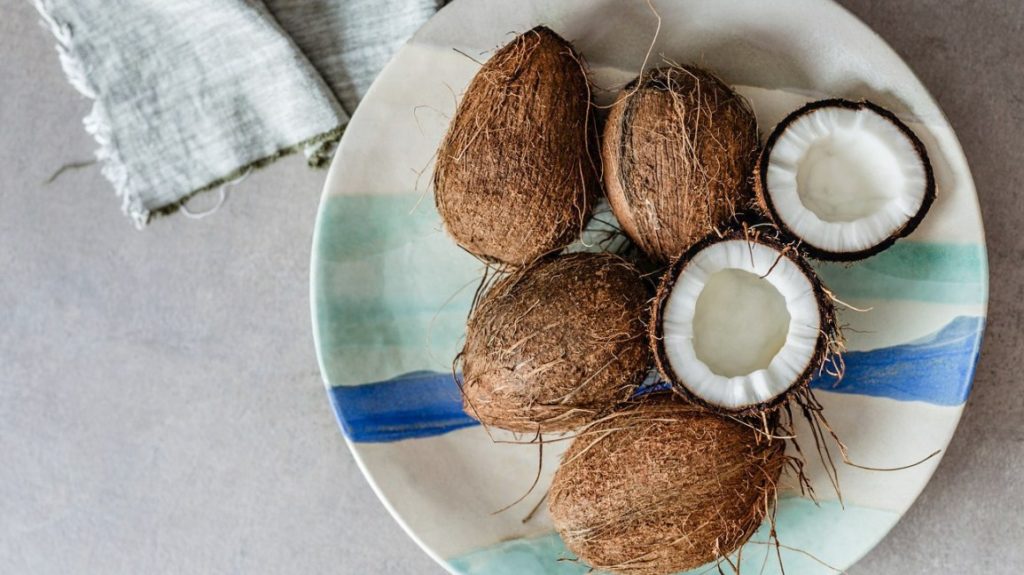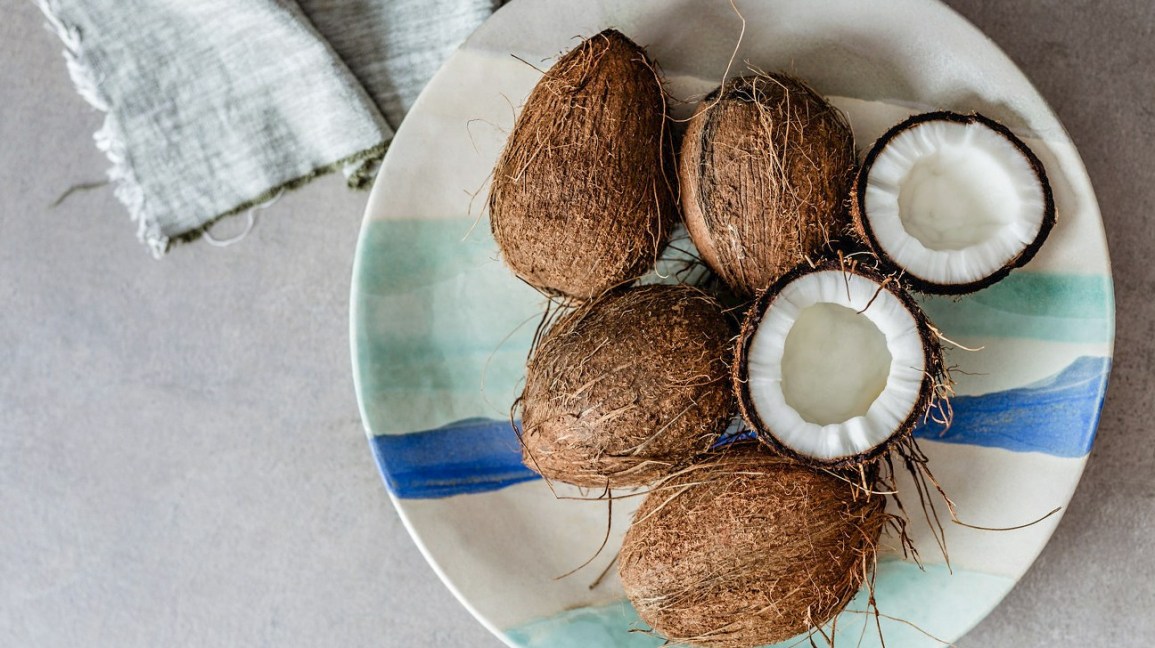
Spicy Brazilian coconut chicken. Collard greens braised in coconut milk. Coconut almond torte.
Notice anything?
Yes, these healthy and mouth-watering dishes all have coconut in them. Whether it’s coconut oil, coconut milk, shredded coconut, or desiccated coconut, there’s a bit of this fruit in every delicious bite.
Culinary arts professionals, home cooks, and foodies are all going nuts for coconuts.
The “Tree of Life”
A common sight in Asia and the Pacific region, coconut trees not only bring to mind picturesque tropical settings. They are also a highly valued fruit known for their many uses.
That is why it has earned the label of being the “tree of life1” as it not only provides food but is also a source of income for both small farmers and large conglomerates.
The coconut palm tree and most of its parts can be used in a variety of ways. For example, its trunk can be used for lumber, its leaves can be turned into woven handicrafts, and from its husk can be derived coir, a fiber used in the manufacture of baskets, mats, and ropes, among others. The copra and oil industries also derive their products from coconuts.
Perhaps the most popular use of coconuts is in the food industry. It is a staple food in most tropical isles, with its fleshy kernel served as dessert and coconut water as a refreshing drink. This fruit has inspired so many dishes and is now making the rounds as a delectable option for health-conscious eaters.
Chefs and amateur cooks alike are now scrambling to concoct mouthwatering meals out of a coconut. Food suppliers and mixologists are now making sure they have it on their product list to readily supply the rising demand for this fruit (it’s also loosely considered a nut or a seed) and its by-products. If you’re wondering what the fuss is all about, here are some top reasons why chefs go loco over coco:
1. Nutrition
Health-conscious chefs are going gaga over coconuts because of their nutritive qualities. As the clamor for healthier meals rises, the search for the scrumptious dishes made with coconut and its derivatives continues.
Coconuts are high in fiber, vitamins, and minerals such as copper, iron, manganese, phosphorus, potassium, and selenium. These minerals aid in the metabolism of carbohydrates, cholesterol, and proteins. It is also valuable in red blood cell production and bone health.
Coconuts have been a part of traditional medicine in different cultures around the globe, most especially among the Asian and Pacific peoples. These are known to have been used as a treatment for various health conditions such as asthma, baldness, cold and cough, constipation, fever, kidney stones, rash and skin infections, toothache, upset stomach, and wounds. This is the reason why coconut is considered a functional food as it provides additional beneficial effects beyond basic nutrition.
2. Heart health advantages
Thanks to modern science and medicine, more studies have been conducted on the efficacy of coconuts and its range of benefits especially when it comes to heart and other cardiovascular tissues. Medical journal findings have found that coconuts help in improving the cholesterol ratio in the body, thus reducing the risk of heart disease.
Similar results were also observed especially on the health condition of Polynesian people and Filipino women, among other research findings. Coconut oil can also help raise good HDL cholesterol and lower the risk of heart disease.
3. Weight management
Chefs are also cooking up a storm with coconuts as it also contains protein. Coconut oil, in particular, is high in healthy saturated fats or medium-chain triglycerides (MCTs). These kinds of fats help the body burn off excess fat especially the stubborn and most dangerous kind – belly fat.
Additionally, it is used as a quick energy source that may help in athletic performance and physical endurance. It may also be converted to ketones, chemicals that are being studied as a treatment for Alzheimer’s, epilepsy, and other conditions. These ketones are also known to reduce one’s appetite so you eat less and get rid of unwanted weight over a period of time.
4. Blood sugar control
Those with diabetes can order their fair share of coconut dishes. Because coconuts are high in fiber and fat, consuming these may help you in stabilizing your blood sugar levels. Coconuts can also help in insulin resistance, slow digestion, and regulate blood sugar levels.
Moreover, arginine, an amino acid found in coconuts that plays a key role in pancreatic function, is also found to have a good effect on regulating blood sugar levels..
Coconut flour can be used for preparing dishes suited for diabetics as it is low in carbohydrates and only has a slight impact on blood glucose levels.
5. Pathogen-killing properties
Another advantage of using coconut in meals is that it has lauric acid. Aside from supporting the immune system, it is also found to have anti-inflammatory and antimicrobial properties.
Lauric acid is converted into monolaurin in the body. This compound is useful in wiping out a variety of disease-causing microorganisms. This is a good protective shield against the common cold, the flu, and other viral infections. Dr. Joseph Mercola, in an article published in The Sydney Morning Herald, supports this premise and highlighted the ability of lauric acid in assisting the body to shield itself from bacterial and viral assaults.
Other studies found that coconut can also destroy pathogens such as harmful fungi, yeasts, and viruses. These pathogens are responsible for diseases such as measles, pneumonia, ringworm, thrush, and throat infections.
Go nuts over coconuts
Coconuts have plenty of nutritional qualities that can help you live a balanced and healthier life. Aside from their delicious taste and refreshing sensation, a wide array of scientific studies can back up the claim that coconuts do provide substantial health benefits.
While the advantages are quite considerable, it is still worth remembering to eat coconuts in moderation. Strive for a healthy balance of good diet and physical activity, so you can enjoy life to the fullest.
